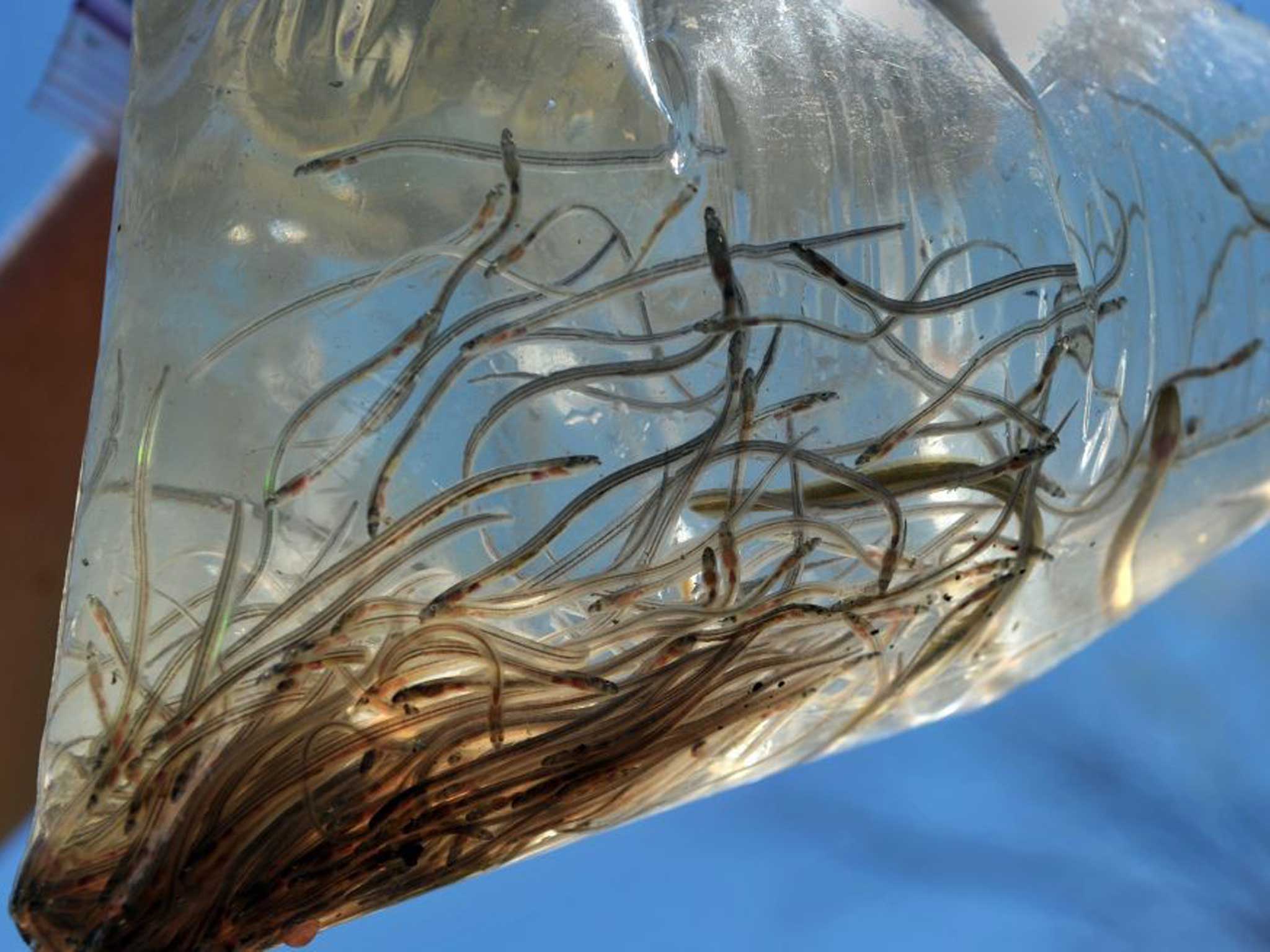The great eel migration: One million to swim to Britain in one night
Another influx of young eels expected on the River Severn in April

Your support helps us to tell the story
From reproductive rights to climate change to Big Tech, The Independent is on the ground when the story is developing. Whether it's investigating the financials of Elon Musk's pro-Trump PAC or producing our latest documentary, 'The A Word', which shines a light on the American women fighting for reproductive rights, we know how important it is to parse out the facts from the messaging.
At such a critical moment in US history, we need reporters on the ground. Your donation allows us to keep sending journalists to speak to both sides of the story.
The Independent is trusted by Americans across the entire political spectrum. And unlike many other quality news outlets, we choose not to lock Americans out of our reporting and analysis with paywalls. We believe quality journalism should be available to everyone, paid for by those who can afford it.
Your support makes all the difference.An armada of more than a million eels is mysteriously swimming towards Britain, exploiting a spring tide and a full moon to arrive in unprecedented numbers.
And waiting with nets for the migration will be teams of conservationists, hoping to smooth the eels’ passage up rivers and avoid man-made flood defences.
For decades, eel numbers had dwindled to the point that they were considered critically endangered. But on Monday night, at least a million juvenile eels are expected to swim up a single British river – the Parrett, which flows through Dorset and Somerset. This will trigger a massive operation by conservationists to catch as many of the slippery eels – known as glass eels – in nets, and transport them round flood defences and weirs blocking their path upriver.
Another influx of young eels, and a similar effort by conservationists to help them round man-made obstacles, is expected on the River Severn in April. Later this year, the Sustainable Eel Group (SEG) plans to restock wetland habitats across England and Wales, particularly East Anglia.
“What we are attempting over the coming months will be the greatest relocation ever done in the UK,” said Andrew Kerr, SEG’s chairman.
If successful, the operation will hold out the hope of a remarkable, and baffling, comeback for the European eel (Anguilla anguilla). From the late 1970s, eels, once regarded as so common they were looked upon as food for the poor, have suffered a severe decline in the UK and across Europe. Glass eels, the almost transparent juvenile form, had slumped by up to 99 per cent compared with 1979 levels. The International Union for the Conservation of Nature (IUCN) classified the European eel as critically endangered.
In the past three years, however, more and more glass eels have started appearing in UK rivers. Experts have yet to explain the unexpected revival, adding to the mystery surrounding a fish that has baffled scientists for centuries.
It took naturalists until the 18th century to work out that eels were fish. The Greek philosopher Aristotle had contended they were “born of earthworms”.
European eels are thought to breed in the Sargasso Sea south of Bermuda, but even this has yet to be confirmed, because spawning of eels in the ocean has never been observed. It is thought, however, that the tiny young eels due to arrive in the UK tomorrow will have drifted with the Gulf Stream for 300 days before making their way up the River Parrett. Conservationists awaiting their arrival are hopeful that 2014 will prove to the best eel season for up to 35 years.
Mr Kerr said: “A million fish in one night on the Parrett would be a phenomenal number. Last year we collected a million but it took us the whole season. This year there are so many we should manage to match it in one night. It would be madness to leave them on the wrong side of barriers where they’ll die.”
Join our commenting forum
Join thought-provoking conversations, follow other Independent readers and see their replies
Comments